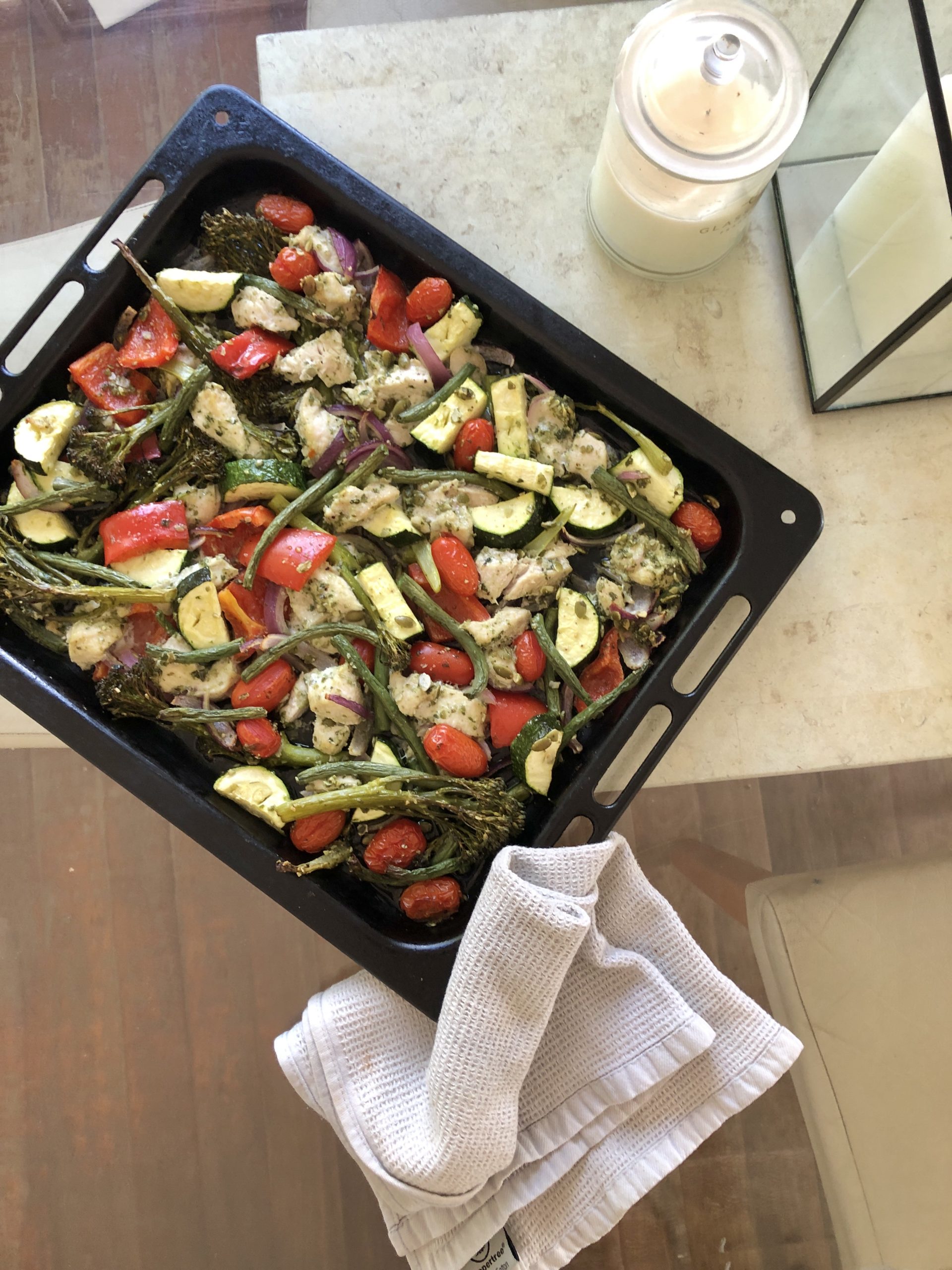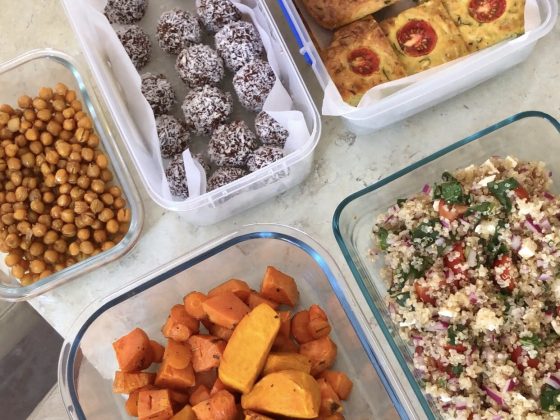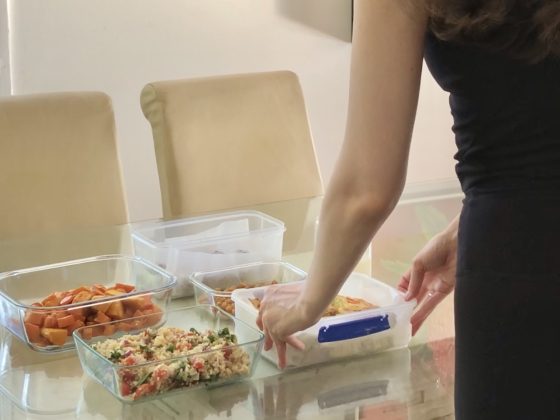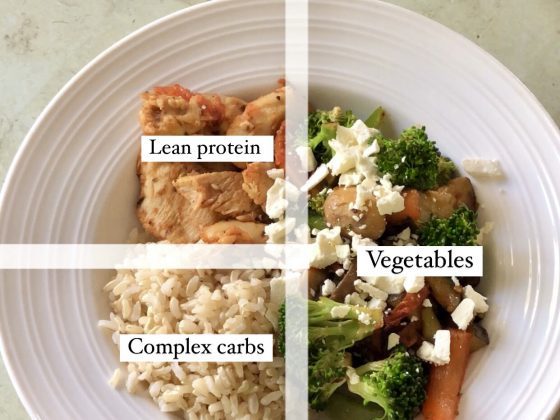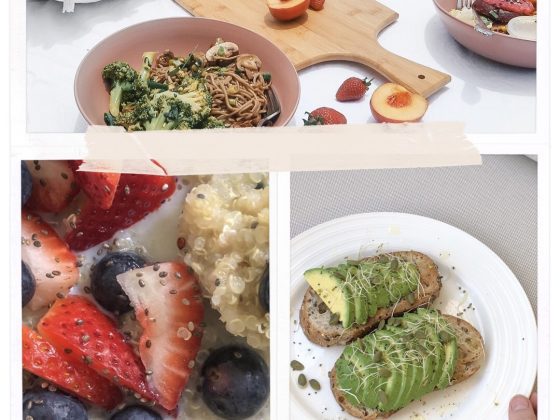Improving your digestion doesn’t have to be difficult, here are four easy habits to get you started.
Eat slower and chew more.
Sometimes our indigestion can be caused by something as simple as eating too quickly. Eating slower helps to stimulate the nervous system’s “rest and digest” state, improving the efficiency of your digestion. Alongside the act of chewing, it also helps to stimulate digestive secretions and enzymes. Basically, you’re giving your body the optimal environment to support healthy digestion.
If you struggle to eat slower, I encourage you to keep distractions away whilst eating. Instead, eat mindfully by giving your meal full attention and savouring the taste, texture and smell.
Stay hydrated.
Adequate water intake can help to regulate bowel movements, prevent constipation and break down foods (with the help of stomach acids and enzymes).
I’ve always been dreadful at remembering to drink water, but two things that typically help me are drinking 1-2 glasses of water each morning before I do anything else, as well as carrying a water bottle with me throughout the day.
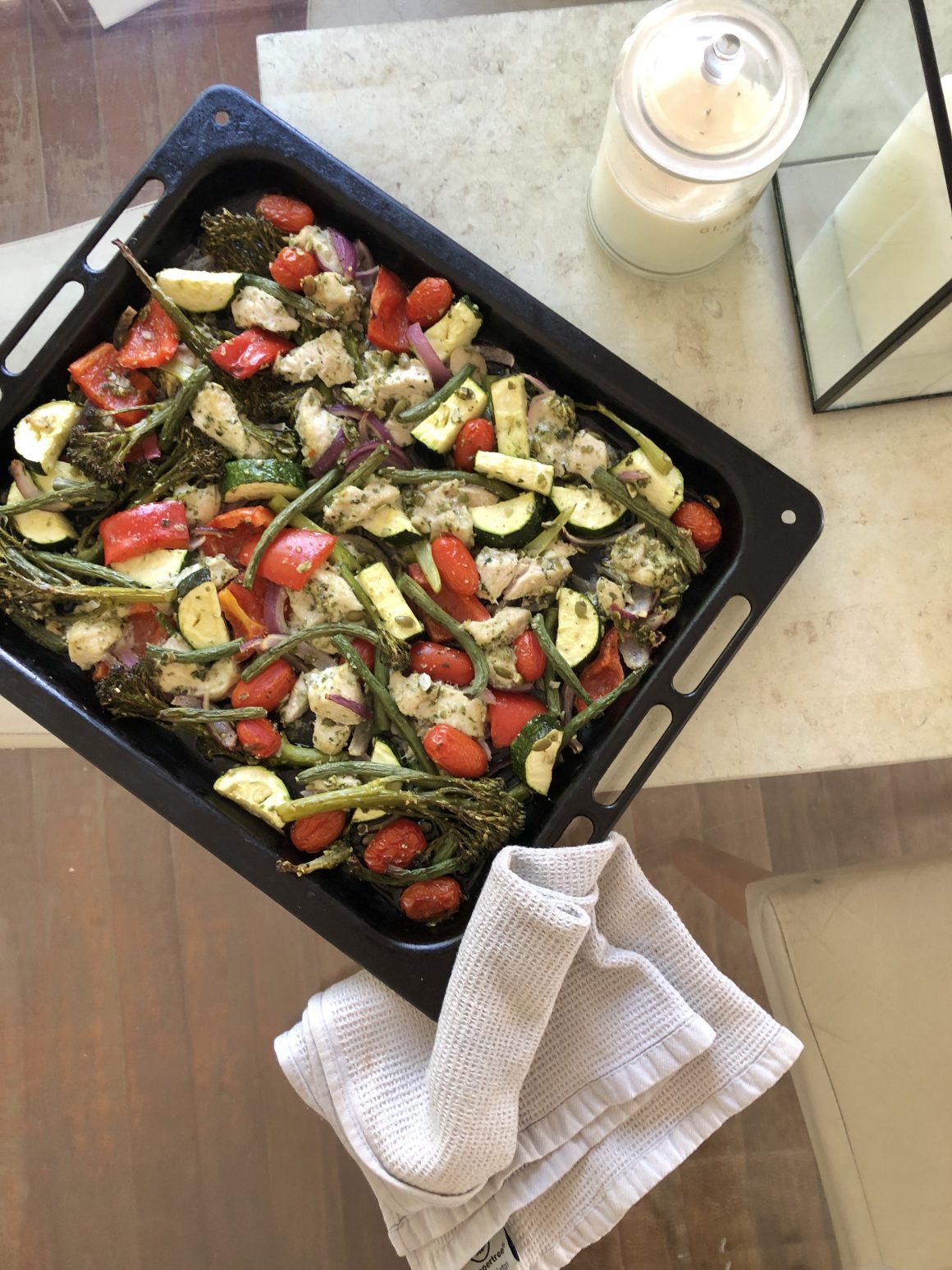

Add vegetables to lunch and/or dinner.
Not only are vegetables packed full of micronutrients, they’re also packed full of fibre. And as you may already know, fibre helps to bulk up stool and help it to move through your digestive system.
And as a fun bonus, eating a variety of vegetables can improve your gut microbiome. If you want to learn simple tips for improving gut health, check out this post.
Note: if you don’t currently have much fibre in your diet, increase your fibre intake slowly. Increasing fibre too quickly when your body isn’t used to it might result in increased bloating or gas. Incorporate them slowly and your body will adjust.
Move your body daily.
Exercise does wonders for the body, including improved digestion. Moving your body regularly leads to improved blood circulation, regular bowel movements and may even encourage a diverse gut microbiome.
I recommend daily walking (around 5000-7000 steps, or a brisk 30 minute walk) and stretching. If possible, also try to include a couple of core strengthening exercises each week. But of course when it comes to exercise consult a GP / exercise physiologist for personalised advice.
Lastly, a reminder to start small! Try building one habit at a time so it can fit into your lifestyle without being overwhelming.
Talk to you soon,
Chanté x
If your digestive concerns are stemming from food intolerances, check out these posts. Likewise, if you have Coeliac Disease or Non-Coeliac Gluten Sensitivity, check out these posts.
If you’re in need of individualised advice concerning Coeliac Disease, IBS, endometriosis, or another condition, I encourage you to see a dietitian! I have online consults available, just DM (@dietitianchante) me or fill in a form here.
